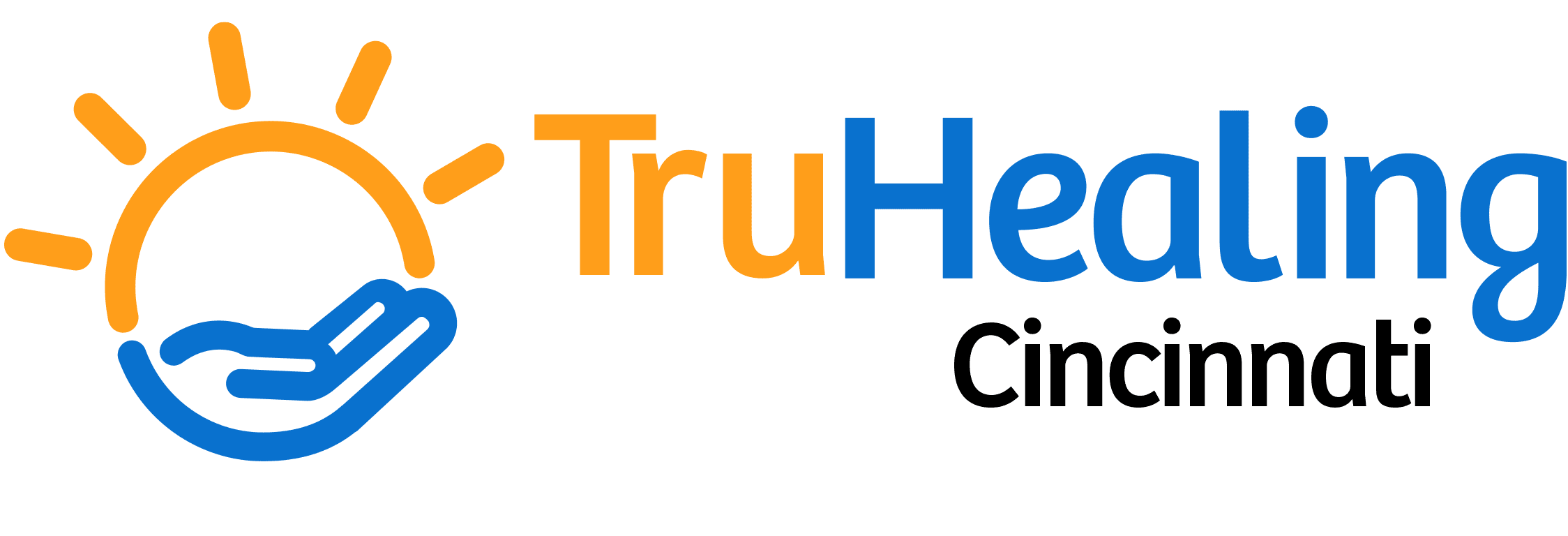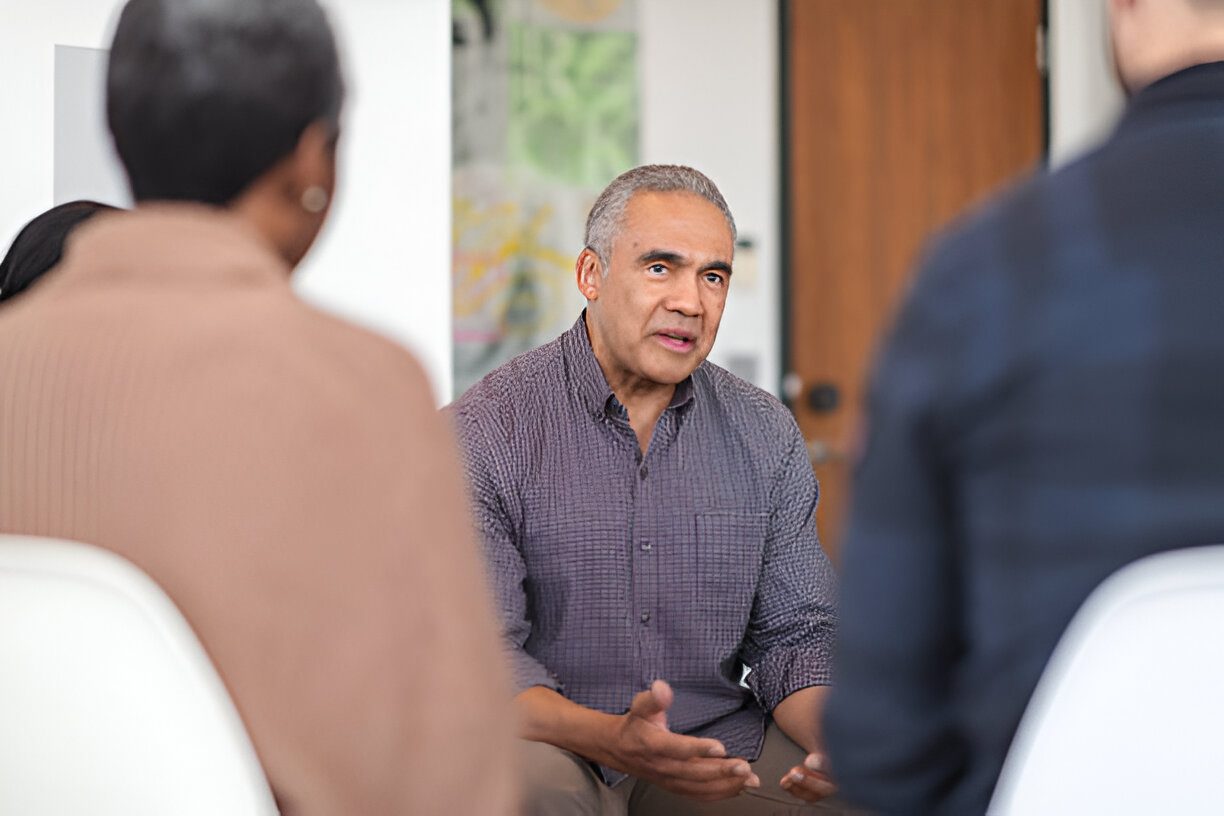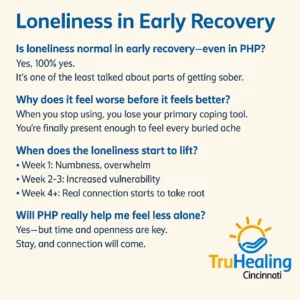You said yes to help. You showed up to treatment. You’re not using.
So… why does it still feel like no one sees you?
It’s a jarring truth of early recovery: you can be sober and still feel completely alone.
And when you’re sitting in a treatment group—surrounded by people, therapists, staff—and you still feel like an outsider? It can feel like maybe something’s broken in you. Like you’re the exception to the healing that’s supposed to happen here.
You’re not.
At TruHealing Cincinnati, we work with people every day who are newly sober and quietly wondering:
“Why do I feel worse now than when I was using?”
“Is this just how life is going to feel now?”
This blog was written for that moment. The ache. The in-between. The week three slump when group still feels like a room of strangers and your thoughts feel too sharp, too loud, too sad.
You’re not alone. Here’s what to know.
Is loneliness normal in early recovery—even in PHP?
Yes. 100% yes.
In fact, it’s one of the most common (and least talked about) parts of getting sober.
Think about what substances used to give you—at least at first:
- Numbness from pain
- A break from feeling like an outsider
- A shortcut to connection (even if it was false)
- A way to escape your own thoughts
Take all of that away—and even when you’re surrounded by people, your system still feels abandoned. That gap between being physically safe but emotionally isolated? That’s early recovery.
PHP doesn’t erase that overnight. It helps hold you through it.
Why does it feel worse before it feels better?
Because for the first time in a long time, you’re awake.
Not just physically—but emotionally, relationally, spiritually.
When you stop using, your nervous system loses its primary coping tool. And now you’re feeling every ache you numbed, every shame you buried, every fear that’s been waiting to speak.
PHP brings structure and support—but it can’t fast-forward the process.
You may feel worse at first because you’re finally present enough to feel everything.
But here’s the good news: feeling worse isn’t proof that recovery isn’t working. It’s often proof that it’s finally begun.
When does the loneliness start to lift?
For most people in PHP, the loneliness doesn’t disappear all at once—it starts to soften around the edges.
At TruHealing Cincinnati, we often see patterns like:
- Week 1: Numbness, overwhelm, resistance
- Week 2–3: Emotional thawing, increased vulnerability, early connections
- Week 4 and beyond: Deeper trust, shared stories, real connection starts to root
But it’s not linear. You might bond with someone early and then feel lost again the next week. You might feel totally invisible until your discharge week, when someone tells you how much your story meant to them.
Healing isn’t a straight road. And connection doesn’t follow a calendar. But if you stay—keep showing up, keep telling the truth—it comes.
What helps the most during the loneliest parts of PHP?
Let’s skip the fluff. Here’s what actually helps when it’s bad:
- Tell one truth in group you haven’t said yet. Even if it’s just “I feel totally disconnected.”
- Look for one person who seems safe—not perfect, just honest. Sit next to them.
- Let your therapist know how heavy the silence is. They won’t be surprised.
- Write a note to yourself at the end of each day: one moment that felt okay, even if it was small.
- Let your guard down 10% more than yesterday. That’s it. No more.
The people who find real belonging in PHP aren’t the loudest. They’re the ones who let themselves be seen just enough to be known.
Will PHP really help me feel less alone?
Yes—but not in the “instant-fix, magical community” kind of way.
PHP works when:
- You’re in the room every day, even when you want to quit.
- You take the risk to not hide behind surface-level answers.
- You let the group see parts of you that feel shameful—and no one runs.
- You allow time to do its slow, unsexy, powerful work.
Our PHP program in Cincinnati is designed around connection—not just recovery. We build in time, structure, and support so you’re not white-knuckling your way through the day.
And we don’t just help you feel less alone in the room—we teach you how to feel less alone inside your own head.
What if I don’t feel like I fit in with the other clients?
That’s okay. Honestly, most people feel that way at first.
You might think:
“I’m not like them.”
“They’ve been through more.”
“I don’t have a story like that.”
“I’m older. Younger. Quieter. Louder.”
But belonging doesn’t require sameness. It requires truth. And over time, truth finds truth.
We’ve seen clients from Lawrenceburg and Lexington walk in thinking they’d never connect—and leave with more real friends than they’ve had in years.
You don’t have to be the same as anyone else here. You just have to stay long enough to let them meet you.
How do I know this is just loneliness—not depression?
Fair question.
Loneliness and depression can overlap. But here are some signs you may be dealing with early sobriety loneliness—not clinical depression:
- You still have moments of connection, even if brief
- You want relationships, even if they feel out of reach
- You notice the loneliness shifting a little from day to day
- You feel emotionally tired—but not emotionally empty
That said—PHP includes mental health support. If what you’re feeling is deeper, heavier, or scarier than expected, you won’t have to guess alone. Our clinicians can help you sort through it.
Can I stay in PHP longer if I’m still struggling with this?
Absolutely. PHP isn’t one-size-fits-all. We often extend care for clients who need more time to stabilize, connect, or dig deeper.
You don’t need to rush your healing just to meet a discharge date. We’ll work with you—and for you—so your timeline reflects your truth, not just your paperwork.
What happens after PHP if I still feel lonely?
Here’s the truth: discharge doesn’t mean you’re done.
That’s why we build bridges while you’re still in treatment, including:
- Aftercare planning that includes group therapy, sober living, or IOP
- Alumni programming, so you stay connected to a community that gets it
- Support finding programs in your area, like in Louisville or other nearby cities
- Relapse prevention tools that include emotional support, not just behavior tracking
We don’t drop you at the door. We walk with you until you’re ready to walk alone—and even then, we’re a phone call away.
Will I always feel this way?
No.
You will not always feel this hollow. This unsure. This disconnected.
Right now, your nervous system is still healing. Your heart is still learning how to trust. Your body is still detoxing from more than substances—it’s detoxing from isolation, shame, secrecy, and survival mode.
The ache won’t last. But the connection you build here? That can.
You don’t need to be hopeful to keep going. You just need to be honest. The belonging will come—quietly, slowly, and then all at once.
We’ve seen it happen.
Still Feeling Alone? Let’s Talk About It.
Call (888) 643-9118 to learn more about our PHP services in Cincinnati, Ohio.
You don’t have to “feel connected” to start healing. You just have to be willing to stay in the room.
We’ll sit with you in the silence until it starts to lift.


